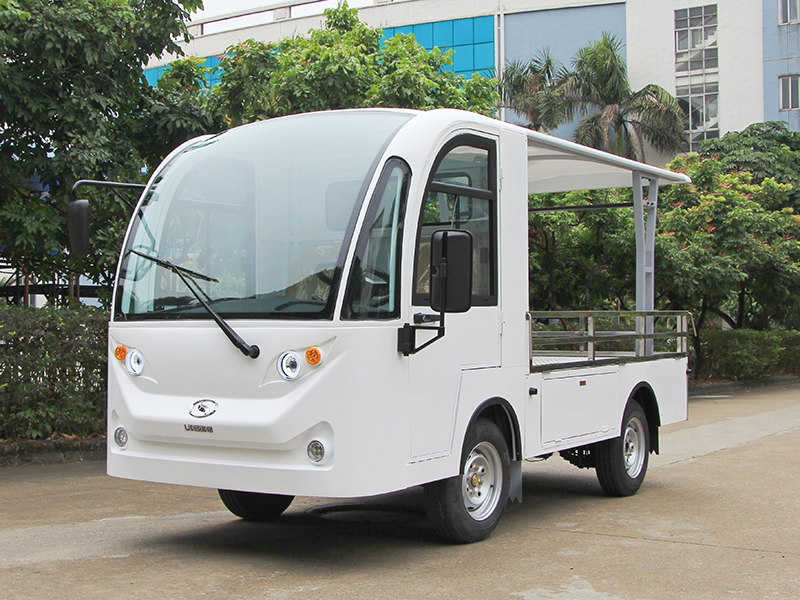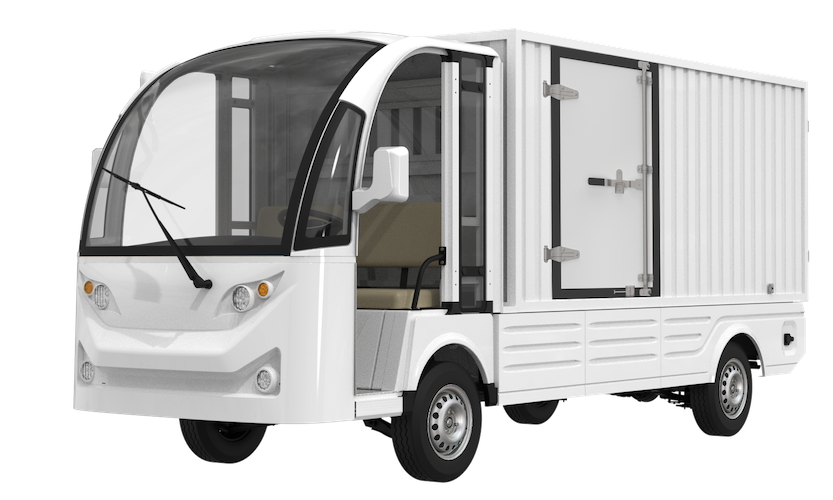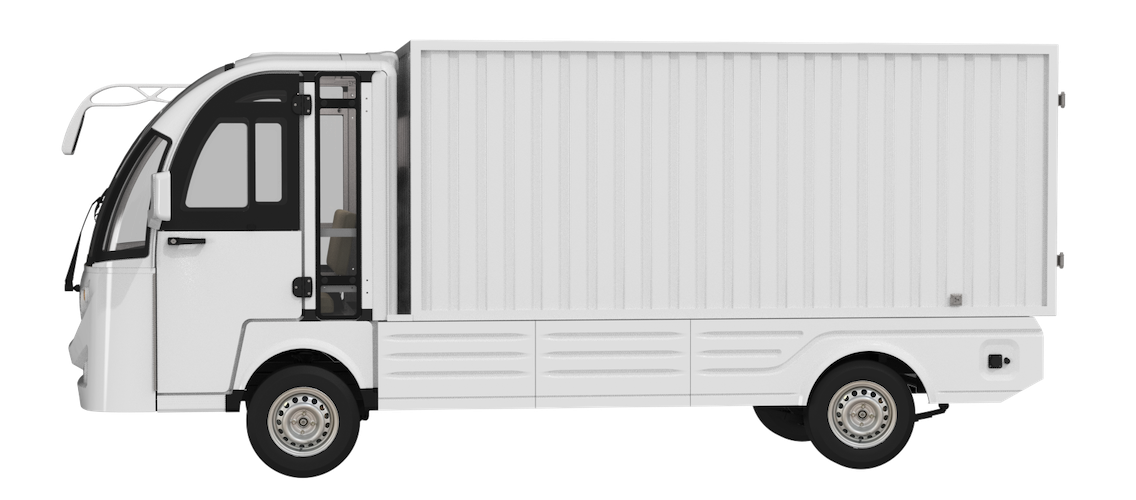Content Menu
● Introduction: Portugal's Thriving Electric Vehicle Sector
● Electric Cargo Vehicle Market: An Overview
>> Notable Trends in Electric Cargo Vehicles
● Leading Electric Cargo Vehicle Manufacturers and Suppliers in Portugal
>> Stellantis Mangualde (Citroën, Peugeot, Opel, Fiat)
>> Famel – Fábrica Mobilidade Elétrica
>> Scania (KLOG and IKEA Collaboration)
>> FUSO (Daimler Group's eCanter)
>> Inquieto
● Why Choose Portuguese Electric Cargo Vehicle Manufacturers and Suppliers?
● Innovation and Technology in Portugal's Electric Cargo Vehicles
>> Battery Advances
>> Smart Telematics and Fleet Management
>> Modular Platform Engineering
● Navigating the Supplier Landscape: Tips for Buyers
● Case Studies: Successful Deployments
>> IKEA and Scania
>> City of Lisbon
● The Future of Electric Cargo Vehicles in Portugal
● Conclusion
● FAQs
>> 1. What makes Portugal a leading country for electric cargo vehicle manufacturing?
>> 2. Which regions in Portugal are known for electric cargo vehicle manufacturing?
>> 3. How do I find a reliable electric cargo vehicle supplier in Portugal?
>> 4. Can Portuguese manufacturers customize electric cargo vehicles for overseas brands or use cases?
>> 5. Are there incentives for transitioning a fleet to electric cargo vehicles in Portugal?
Portugal is quickly establishing itself as a major player in the electric vehicle revolution, particularly in the field of electric cargo vehicles. As interest in sustainability and green logistics continues to grow in Europe, the Portuguese electric cargo vehicle market is booming—driven by innovative manufacturers, strong government support, and expanding infrastructure. This article provides a comprehensive look at the top electric cargo vehicle manufacturers and suppliers in Portugal, reviews key models, examines technological trends, and provides actionable insights for international buyers and business partners.

Introduction: Portugal's Thriving Electric Vehicle Sector
Portugal's commitment to electrified transportation is evident from its record-breaking growth in battery electric vehicle (BEV) adoption. In recent years, over 20% of new passenger vehicle sales have been fully electric, reflecting both consumer confidence and corporate readiness to transition toward greener fleets. The country's robust charging network, supportive incentives, and international collaborations make it an attractive hub for electric cargo vehicle manufacturers and suppliers. This momentum extends beyond passenger cars into the commercial sector, where electric cargo vehicles are becoming essential components of urban and intercity logistics.
Electric Cargo Vehicle Market: An Overview
Portugal's electric cargo vehicle market is diverse, catering to different segments—urban delivery, heavy logistics, municipal services, and last-mile solutions. The government's sustainability initiatives and the proactive adoption of innovative technologies position the country as a model for other European markets to follow.
- Market size and momentum: Annual BEV sales exceed 40,000 units, with commercial vehicles registering strong, double-digit annual growth supported by increasing environmental regulations.
- Infrastructure: There are over 10,000 public charging points, with government plans to expand this network rapidly, including the installation of fast chargers along major transport corridors.
- Policy support: Financial incentives, rebates for fleet conversions, and relaxed regulations have created fertile conditions for both start-ups and international giants to grow. Additionally, public tenders favor eco-friendly vehicle operators, boosting the demand for electric cargo options.
Notable Trends in Electric Cargo Vehicles
- Adoption of light commercial electric vans: Ideal for urban deliveries, these vehicles reduce emissions and noise pollution in cities. They are favored by e-commerce companies and local couriers for their maneuverability and efficiency.
- Deployment of heavy-duty electric trucks: Multinational corporations are piloting and gradually scaling up the use of electric cargo vehicles for medium and long-haul logistics. This shift is supported by continuous improvements in battery capacity and charging infrastructure.
- Rising demand for last-mile solutions: Electric cargo tricycles and micro-vans fill the gap for short-range, high-frequency deliveries, especially in densely populated urban centers.
Leading Electric Cargo Vehicle Manufacturers and Suppliers in Portugal
Stellantis Mangualde (Citroën, Peugeot, Opel, Fiat)
Stellantis, a global automotive group, has positioned its Mangualde plant as the nerve center for producing large-series electric light commercial vehicles (LCVs) in Portugal. Starting in 2025, this facility manufactures battery electric vans for brands such as Citroën, Fiat, Opel, and Peugeot, producing both passenger and cargo variants with a dedicated assembly line for battery-electric vehicles.
Key models:
- Citroën ë-Berlingo Van
- Peugeot e-Partner
- Opel Combo-e Cargo
- Fiat e-Doblò Cargo
These vehicles are recognized for their reliability, low running costs, and suitability for both domestic and export markets. Their versatility makes them a popular choice for a variety of cargo and service applications, from food delivery to municipal works.
Famel – Fábrica Mobilidade Elétrica
A historic Portuguese brand, Famel has been revived as a manufacturer of efficient electric vehicles, combining classic charm with modern engineering. Famel's electric motorcycles, such as the E-XF, offer an excellent base for cargo conversions, suited to lighter city logistics and short-range commercial runs.
Features of Famel E-XF:
- 5kW electric motor enabling urban agility
- Maximum speed of 100km/h, adequate for city commuting
- Range between 50 and 80km depending on battery configuration and usage patterns
- Iconic design, robust construction, and ease of maintenance
These motorcycles are increasingly adapted with modular cargo boxes, serving local businesses and couriers needing efficient last-mile transportation options.
Scania (KLOG and IKEA Collaboration)
Scania, in collaboration with logistics firm KLOG and IKEA, is pioneering the introduction of heavy-duty electric trucks in Portugal for freight movement between factories, ports, and stores. This groundbreaking partnership exemplifies the transition toward decarbonized, large-scale logistics. Scania's electric trucks feature modular battery packs, advanced telematics, and optimized charging strategies for industrial use.
By integrating electric vehicles into its supply chain, IKEA reduces operational carbon emissions while maintaining high logistical performance. The success of this collaboration encourages other large retailers and logistics companies to adopt cleaner electric cargo trucks, paving the way for broader market acceptance.

FUSO (Daimler Group's eCanter)
Produced at Daimler's Tramagal plant in Portugal, the FUSO eCanter is a light-duty electric truck suited for municipal and commercial use. Popular among city fleets for gardening, waste disposal, and last-mile logistics, the eCanter combines a practical 100km range with long-term durability.
Key attributes include:
- Silent operation that reduces urban noise pollution
- Zero tailpipe emissions supporting city air quality goals
- Proven performance in various European urban centers, with extensive after-sales support
Municipalities in Portugal increasingly rely on the eCanter for service fleets, demonstrating the vehicle's reliability and utility in demanding urban conditions.
Inquieto
Inquieto operates as a cross-border supplier with a significant presence in both Spain and Portugal, specializing in last-mile electric cargo vehicles. Their fleet includes electric cargo tricycles and urban microvans—ideal for e-commerce, postal, and food delivery operations.
- Fleet comprises over 3,400 electric vehicles designed for last-mile efficiency
- Network of 58 branches and 300+ workshops across the Iberian Peninsula, ensuring prompt service and spare parts availability
- Fast-growing footprint in urban logistics driven by agile and cost-effective electric cargo solutions
Inquieto's flexible vehicle options and extensive service network make it a favored partner for businesses looking to electrify their delivery fleets while maintaining operational agility.
Why Choose Portuguese Electric Cargo Vehicle Manufacturers and Suppliers?
The Portuguese electric cargo vehicle ecosystem stands out for several compelling reasons that make it attractive to both domestic and international clients:
- Innovation and R&D: Local companies invest heavily in new battery technologies, incorporating lightweight materials and state-of-the-art powertrain systems to extend vehicle range and payload capacity, driving competitive advantages.
- OEM/ODM flexibility: Factories in Portugal, like Mangualde (Stellantis) and Tramagal (Daimler), offer versatile contract manufacturing. These facilities support tailored OEM and ODM services for overseas buyers, enabling custom solutions in product design, branding, and functionality.
- Strategic location: Portugal serves as a gateway to EU-wide markets with a highly developed logistics infrastructure and export-friendly regulations. Its deep seaports and international airports facilitate smooth distribution of electric cargo vehicles across Europe and beyond.
- Robust after-sales networks: Many manufacturers provide comprehensive white-label vehicles coupled with extensive service coverage, warranty programs, and parts availability, mitigating downtime and ensuring fleet reliability.
- Sustainability commitments: Portugal's manufacturers actively contribute to national policies on sustainability and decarbonization, aligning product development with climate goals and corporate social responsibility.
Innovation and Technology in Portugal's Electric Cargo Vehicles
Battery Advances
Portuguese manufacturers stay at the forefront of energy storage technology by integrating next-generation lithium-ion and solid-state batteries. These improvements primarily aim to enhance energy density, allowing electric cargo vehicles to travel longer distances without frequent recharging, which is critical for logistics operations.
Additionally, integrated thermal management systems optimize battery performance under varying ambient temperatures, providing consistent driving ranges in both hot summers and cold winters seen in different Portuguese regions.
Smart Telematics and Fleet Management
The infusion of advanced telematics into electric cargo vehicles enables real-time vehicle tracking, operational efficiency analytics, and preventive maintenance alerts. Fleet operators benefit from platforms that support remote diagnostics and over-the-air software updates, reducing the need for physical vehicle visits and ensuring timely problem resolution.
Software-as-a-Service (SaaS) fleet management systems available from Portuguese suppliers include intelligent routing and energy consumption monitoring, which help decrease operational costs and improve delivery punctuality.
Modular Platform Engineering
Manufacturers employ scalable electric chassis that can support multiple vehicle body types—ranging from cargo vans to flatbeds—to meet a broad array of commercial applications. This modular approach makes it easier to customize vehicles according to client needs without incurring delays typical of bespoke engineering.
Furthermore, OEM supply partnerships enable Portuguese manufacturers to source key components or deliver fully assembled vehicles globally, enhancing supply chain reliability and speed to market.
Navigating the Supplier Landscape: Tips for Buyers
International buyers considering Portuguese electric cargo vehicle manufacturers and suppliers should keep the following points in mind to ensure successful partnership and procurement outcomes:
- Assess supplier certifications for compliance with EU quality, safety, and environmental standards, ensuring vehicles meet regulatory requirements in both source and destination countries.
- Request battery and performance test reports to verify vehicle reliability and range claims, which are essential for long-term fleet planning.
- Clarify support & warranty terms before importing or private labeling vehicles to avoid costly surprises post-purchase.
- Visit production facilities or arrange virtual tours for firsthand evaluation of manufacturing processes, quality controls, and capacity.
- Negotiate custom configurations for unique branding, body styles, cargo requirements, or technology options that may differentiate your fleet offerings.
- Plan for charging infrastructure investments or partnerships, as many leading suppliers provide integrated solutions for depot and on-road charging, crucial for operational continuity.
Case Studies: Successful Deployments
IKEA and Scania
KLOG, the logistics operator for IKEA in Portugal, deploys Scania electric trucks to streamline goods movement and slash supply chain emissions. This partnership demonstrates the scalability of electric cargo solutions for heavy-duty, high-volume requirements, underscoring the potential for electrification in traditionally diesel-dependent freight sectors.
City of Lisbon
Lisbon's municipal fleet includes FUSO eCanter trucks used for gardening and waste collection tasks. These electric trucks contribute to quieter streets and cleaner neighborhoods while showcasing the practicality of EVs in demanding service roles. The success of this deployment encourages other municipalities to electrify their fleets.
The Future of Electric Cargo Vehicles in Portugal
Portugal's trajectory as a leader in electric cargo vehicle manufacturing and supply is clear. With expanding model selections, continuous governmental support, and proven international success stories, the next decade will see further innovations particularly in battery technology, connected services, and sustainable circular manufacturing processes.
The country's supply chain diversification and investments in renewable energy integration further enhance its position as a preferred partner for companies seeking environmentally responsible cargo transport solutions.
Conclusion
Portugal stands at the forefront of sustainable cargo transportation in Europe. Its electric cargo vehicle manufacturers and suppliers offer a rich blend of technical excellence, manufacturing flexibility, and sustainability leadership. International buyers and logistics operators looking for reliable OEM partners or innovative product lines should strongly consider Portugal's rapidly growing ecosystem. By leveraging the nation's strengths in production, technology, and export orientation, stakeholders can meet future logistics challenges with confidence while advancing global decarbonization goals.

FAQs
1. What makes Portugal a leading country for electric cargo vehicle manufacturing?
Portugal offers a unique combination of government incentives, advanced manufacturing facilities, robust charging infrastructure, and favorable export conditions. This environment attracts both multinational and local manufacturers to establish operations, serving both EU and international markets with cutting-edge electric cargo vehicles.
2. Which regions in Portugal are known for electric cargo vehicle manufacturing?
The largest electric cargo vehicle production hubs are in Mangualde (home of Stellantis plant) and Tramagal (location of Daimler's FUSO plant). These regions are equipped to produce light commercial vehicles and heavy-duty electric trucks for various global brands.
3. How do I find a reliable electric cargo vehicle supplier in Portugal?
Start by researching manufacturers' backgrounds and verifying product certifications. Visiting facilities in person or virtually helps assess capabilities. Prioritize companies that offer OEM/ODM services, warranty coverage, and strong after-sales support for maximum value.
4. Can Portuguese manufacturers customize electric cargo vehicles for overseas brands or use cases?
Yes, most leading factories provide customization options for exports, including branding, body styles, technological features, and cargo configurations. This flexibility allows tailoring vehicles to meet diverse commercial and regional requirements.
5. Are there incentives for transitioning a fleet to electric cargo vehicles in Portugal?
Yes, both Portuguese government and EU-level programs provide financial aid such as rebates, tax breaks, and fleet conversion subsidies that encourage adoption of electric cargo vehicles, particularly for logistics and municipal services sectors.










































